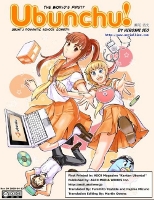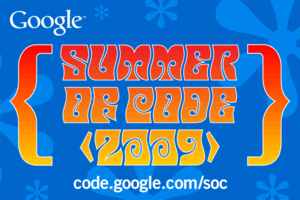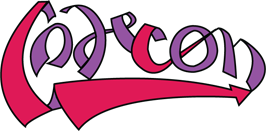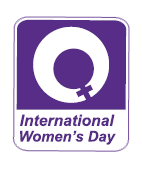 The O’Reilly Open Source Convention (OSCON) moved down from Portland to San Jose this year. Here are some highlights of my experiences at the conference this time.
The O’Reilly Open Source Convention (OSCON) moved down from Portland to San Jose this year. Here are some highlights of my experiences at the conference this time.
What did I like?
Community
Why does every open source developer, entrepreneur and evangelist want to be at OSCON every year? More precisely, why do I like to be at OSCON every year ![]() It’s because of the community – the community around open source. OSCON continues to be the only open source technology conference in the US where everyone can meet their friends, colleagues and fellow community members to talk technology and discuss where open source is heading. OSCON still manages to attract the combined free and open source community. There are developers, community activists, and leading technologists from local and global open source projects and organizations, all interested in leveraging open source software and in practicing collaborative innovation.
It’s because of the community – the community around open source. OSCON continues to be the only open source technology conference in the US where everyone can meet their friends, colleagues and fellow community members to talk technology and discuss where open source is heading. OSCON still manages to attract the combined free and open source community. There are developers, community activists, and leading technologists from local and global open source projects and organizations, all interested in leveraging open source software and in practicing collaborative innovation.
What did I find really interesting?
Open Source in Education
Anyone involved in open source advocacy today will include “open source in education” as one of their top priorities. The global message is clear – there is a shortage of talent to support open source software. It is the education systems across the world which need to produce these needed resources. A couple of talks at OSCON – ‘Educating Students in 21st Century Skills via FOSS’ and ‘New Ways for Teaching Children Software Programming’ featured experts who relayed their experiences and reviewed best practices in teaching open source technologies in high schools and universities in the US.
Open Government: Transparency = Open Source + Open Standards + Open Data
Tim O’Reilly, publisher and owner of O’Reilly Media, started the discussions on Open Government at OSCON with his keynote which highlighted efforts of the new Obama administration to promote open data and open source software for equal access to information. O’Reilly also talked about the new advocacy group – “Open Source for America” which will focus on lobbying the US government to use open source software. There were also some excellent panel discussions on open government which discussed issues of open data, transparency and the practicalities of working with government. Personally, having worked for many years on technology projects with government agencies and witnessed first-hand the fast pace at which agencies have absorbed open source technologies – it was very interesting to witness the current spike in enthusiasm among the Silicon Valley technorati to engage in public-private partnerships to work with the federal government. In the panel, ‘Open Source / Open Government’ – moderated by my colleague at the Open Source Initiative (OSI), Danese Cooper – Brian Behlendorf spoke of the sometimes frustrating effort required to work with various agencies. The panel provided valuable insight into the tough process of trying to implement open government in real organizations. The second panel on ”Bureaucrats, Technocrats and Policy Cats: How the Government is turning to Open Source, and Why’ presented Oregon state initiatives such as DemocracyLab, Government Open Source Conference (GOSCON) and Open Source Digital Voting Foundation (OSDV). This panel offered a snapshot of changes that open source software has enabled in public policy, government, and education.
Digital Media, Publishing, Open Source
The age of digital media has arrived. News on paper has to co-exist with the Internet. And OSCON sessions on how paper and digital are working together using open source were well presented by New York Times (NYT) as well as by National Public Radio (NPR). David Gottfrid of the New York Times did a great session on the NYT’s goals to share their content online and their APIs for opening up their digital content – news stories, audio podcasts, blogs and opinions. Excellent material to build some great data mashups. Another interesting talk on mainstream media going online, was by Adam Martin of National Public Radio (NPR) who walked through NPR Digital’s open APIs for sharing their audio podcasts and online content. Grey areas still exist such as licensing of content for non commercial vs. commercial usage as well as their choice to not use CC licenses for content distribution. There were many questions about what non-commercial usage is. What if someone’s personal blog uses Google Ads on their site? What if someone mashes up NPR audio with their own commentary and spreads disinformation? Boundaries of usage are still unclear and being worked out by these organizations.
Social Good: Making a Change with Open Source
My friend Zaheda Bhorat organized a diverse group of projects showcasing how open standards and open source software are helping to generate social benefits today. The presenters for three different projects – Paul Rademaker from allforgood.org, Adam Lerer from Open Data Kit (an Android based system helping community healthcare workers in Kenya and Uganda) and Greg Norris of Earthster.org – talked about how their projects are using open source software, open data and open standards to make an impact in the areas of volunteering, poverty eradication, healthcare and climate change.
Technology Trends
Other sessions that I enjoyed attending included “State of Lightning Talks” hosted by Josh Berkus to get a 5 minute snapshot of active open source projects – from PGSQL, Drupal, OpenOffice to newcomers such as MariaDB, R language, and MongoDB. Jim Zemlin of the Linux Foundation delivered the closing keynote for the conference on Friday afternoon. It was an interesting talk about Zemlin’s projections on how Linux was fast becoming the default choice for peripheral hardware producers. Linux has helped Asian hardware vendors maintain their margins in a high volume business. These vendors use Linux for its technology as well as to avoid Microsoft license fees. He also predicted that Apple’s AppStore model was going to become pervasive with every hardware vendor having their own store to reduce fees that have to be paid to third parties. Jim offered another projection about the netbook revolution coming to the US in the next 6 months, with ATT launching a $50 netbook based VOIP service.
Three things that I felt were well done at OSCON
- Excellent content on emerging topics: I liked the breadth and depth of new and emerging topics such as open government, climate change, social good.
- Good expo interaction with excellent talks from companies (e.g. Intel talk on Moblin) and some excellent organizations in both the dot org and for-profit sections.
- Snacks, healthy as well as not-so-healthy, in the expo hall sponsored for every break

Three things that I’d like to see at OSCON
- New speakers; New topics: Fresh faces and new topics can always help invigorate a conference.
- More participation: Attendance was estimated at about 2000 people by the organizers this year. In the vastness of the San Jose convention center, the crowds seemed smaller. Maybe lower registration fees would help in these times of recession. Lower fees could also help OSCON compete with low cost or free unconferences that are gaining in popularity.
- More water please: All attendees would benefit from more water dispensers in the hallways and expo hall.






